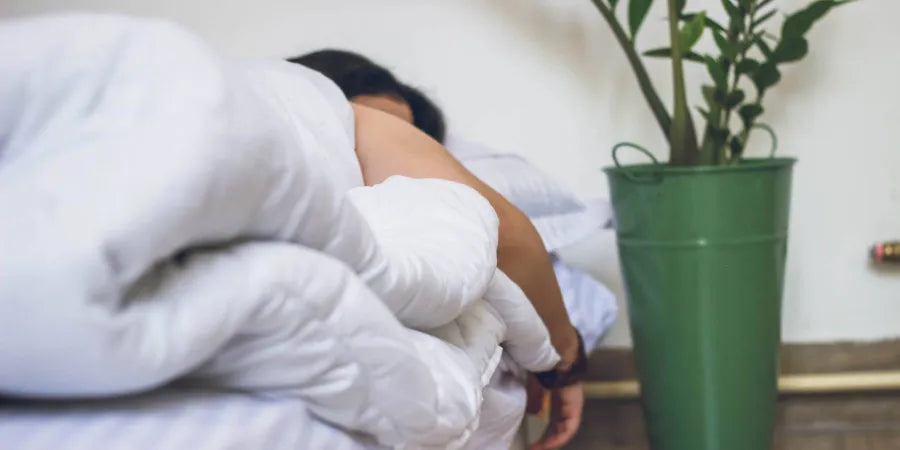Your Cart is Empty
PRESIDENT'S DAY MATTRESS SALE
PRESIDENT'S DAY MATTRESS SALE
Mattresses
Guide to Achieving Better Sleep: Top Tips and Habits
October 23, 2023 2 min read

Sleep enhancement may appear overwhelming at the outset, but by incorporating simple habits, you can start on a path towards better rest.
Once the desire to enhance sleep quality or quantity arises, the urge to make drastic changes can be strong. However, initiating with small yet effective habits usually proves more sustainable.
IMPROVING YOUR SLEEP
The Importance of Daily Routines
To truly foster a good night's rest, one must look beyond bedtime rituals. A wholesome daytime routine significantly influences nighttime restfulness.
Top Tips for a Rejuvenating Sleep
Understanding the science behind each tip ensures you can craft a personalized sleep plan tailored to your lifestyle.
1. Daily Wellness

Daily activities, ranging from outdoor time to meal planning, have a direct effect on nighttime rest.
- Daylight Exposure: Aim for 30 minutes daily. It aids in regulating the body's sleep-wake pattern.
- Consistent Sleep Schedule: Harmonizes your body's internal clock, enhancing sleep quality.
- Short and Early Naps: Limit to 20 minutes to avoid interfering with nighttime sleep.
- Balanced Diet: Nutrients can influence sleep patterns, so maintain a diet rich in fruits, vegetables, and whole grains.
- Relaxation Techniques: Deep breathing and visualization can mitigate stress, promoting better sleep.
2. Sleep Routine
A consistent nightly routine is fundamental for sound sleep.
- Sufficient Sleep Duration: Aim for a minimum of seven hours per night.
- Established Pre-Bed Rituals: Consistent activities signal the body that it's time to wind down.
- Bed Usage: Reserve the bed for sleep and intimacy to strengthen the sleep-bed association.
- Distraction Minimization: Set phones to silent and avoid clock-watching to maintain a peaceful sleep environment.
3. Sleep Environment

An optimal sleep environment fosters deeper, uninterrupted sleep.
- Noise Management: Minimize disruptions with earplugs or white noise machines.
- Darkness: Keep the bedroom devoid of light to promote better sleep.
- Temperature: Maintain a range of 65 to 68 degrees Fahrenheit for optimal comfort.
- Comfortable Bedding: Invest in a suitable mattress and pillows to support restful posture.
- Aromatherapy: Scents like lavender can induce relaxation.
- Ventilation: Fresh air can enhance sleep quality.
4. Alcohol & Caffeine Consumption

These substances can significantly affect sleep patterns.
- Limit Caffeine: Refrain from caffeine after 2 p.m. to ensure it doesn't interfere with sleep.
- Mindful Caffeine Consumption: High reliance might be masking underlying sleep disorders.
- Avoid Evening Alcohol: Alcohol disrupts natural sleep cycles, leading to fragmented rest.
- Reduce Nicotine: As a stimulant, nicotine can interfere with sleep.
Implementing Sleep Tips: Getting Started
Initiating a sleep improvement journey requires patience, commitment, and self-compassion.
- Begin Small: Initiate changes incrementally to avoid feeling overwhelmed.
- Persistence: Benefits might not be immediate, but consistency will yield results.
- Self-compassion: Remember, perfection is not the goal; improvement is.
- Collaborate: If sharing a bed, involve your partner in your sleep improvement journey.
- Seek Medical Advice: If sleep challenges persist, consulting a doctor is advisable.
Armed with these tips and a commitment to change, better sleep is well within reach.
Subscribe
Sign up to get the latest on sales, new releases and more …



















